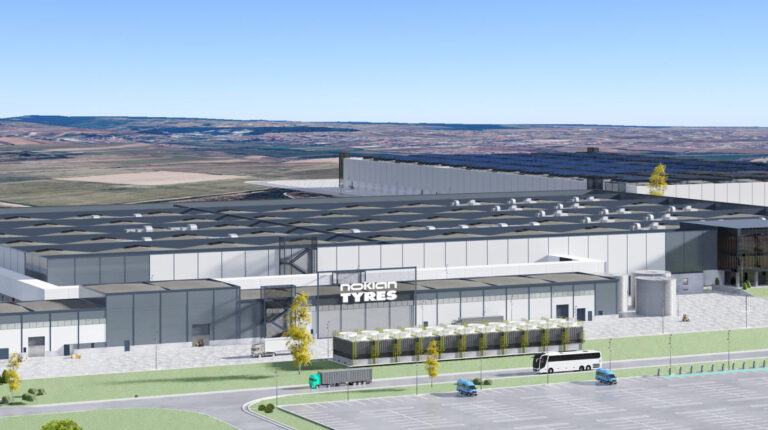Nokian has revealed more details of its new Oradea factory in Romania, scheduled to produce its first tires in the second half of 2024. The facility will be, the tire maker claims, the world’s first zero CO2 emission tire factory.
Nokian currently produces tires at comparatively low factory CO2 emission levels – the lowest in the tire industry, claims Nokian’s data. The tire maker’s CO2 emissions in 2022 were around 400kg per ton of tires manufactured, compared with its competitors, which it places at between 800kg and 1,100kg.
“The Oradea factory will take the company to a whole new, lower, level of CO2 emissions globally,” said Teppo Huovila, vice president of quality and sustainability at Nokian.
If the main source for CO2 emissions is energy, how is it possible to achieve the zero CO2 emission standard at a tire manufacturing facility? The answer is simple: we must use energy that produces zero CO2 emissions, Nokian states.
“All energy that we use at the Oradea factory will be from zero CO2 emission sources. It can be, for example wind, hydro, biomass or solar energy or a mix of several,” said Huovila.
Also, all processes used at the factory will be designed to be as energy efficient as possible. The aim is to minimize the ratio of energy used per tire manufactured. The high level of automation and robotics guarantees the efficiency of the processes in general, but it also helps to save energy, materials and all other precious resources.
“Modern tire manufacturing machines are designed to be very energy efficient. The state-of-the-art machines we will be installing in the factory support the aim to use as little energy as possible in all the different phases of the production process,” Huovila added.
After producing its first tires in the latter half of 2024, the Oradea factory will manufacture tires for commercial use from 2025.
“We are aiming for the same zero waste to landfill standard as we have at our Nokia factory,” said Huovila. “This means that all waste is recycled or reused. A working tire factory produces over 10 types of waste, and we are looking for local recycling partners for them all, so that all the recycling processes will be done as close to the factory as possible.”
Factors such as transportation and raw supply materials are also being considered.
“All vans we acquire will be electric,” continued Huovila. “We are also building electric chargers and bicycle parks for the employees to encourage them to use low emission ways of transport.”
As the Oradea factory will be focusing on manufacturing tires for the Central European markets, the distances to transport the finished products are reasonable, which also contributes to lowers emissions.



